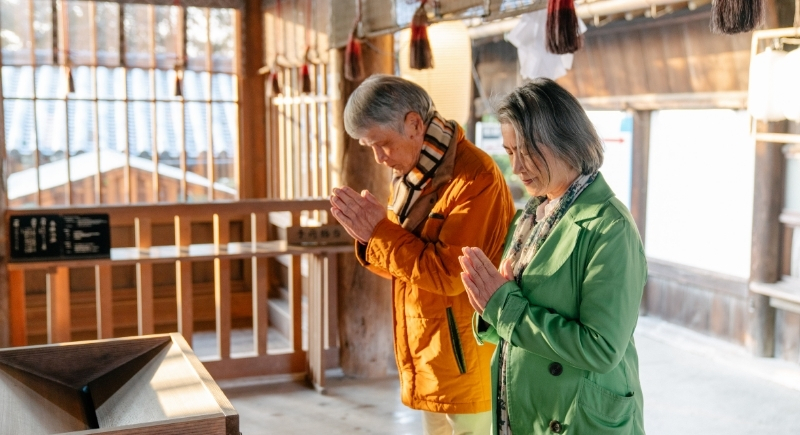15 Signs of Incompatibility Older Couples Shouldn’t Ignore
It can be gratifying to get older with someone you love, but it’s not always easy. The people you’re with change as well. Plus, changes in health and family dynamics can turn minor disagreements into big problems that push people apart. That explains why divorce among couples over 50, often called “gray divorce,” has nearly doubled since the 1990s. Fortunately, spotting the warning signs early gives you a chance to address them before it’s too late.
Look out for these signs if you want your later years to be peaceful and connected.
Different Retirement Dreams

Credit: Canva
Retirement can mean a luxury cruise to one person and a slow morning with coffee and a crossword to another. When those ideas don’t line up, it often leads to tension. Talking about expectations early makes it easier to find common ground and prevents disappointment later.
Spending vs. Saving Wars

Credit: Getty Images
Prioritize budgeting and discuss expectations to avoid getting into fights over something as small as a grocery bill. Money habits only get stronger with age, and differences in that area can give way to resentment. This dynamic is especially hard for couples who don’t have much of a nest egg.
Health on Different Timetables

Credit: Canva
Habits like walking every day or choosing healthier meals reflect long-term priorities. If health isn’t something both people value, the difference can create distance and make life together feel out of step.
Social Energy Mismatch

Credit: Getty Images
As the years go by, quiet evenings at home can feel more appealing than crowded get-togethers. The trouble starts when that shift isn’t shared. Retirement brings plenty of free time, but instead of spending it together, couples may find themselves drifting toward separate routines.
Intimacy Out of Sync

Credit: iStockphoto
Desire doesn’t disappear with age, but it can change. People can lose all interest in physical intimacy or think that they should cool off due to old age. At the same time, their partners might feel rejected by such behaviors. This is an essential but challenging conversation to have.
Clashing Coping Styles

Credit: iStockphoto
Health scares, family drama, and money troubles can test a relationship. Things get worse when a couple has different ways of acknowledging and handling the stress. What feels like “space” to one may feel like abandonment to the other.
Ghosts of Old Arguments

Credit: iStockphoto
When people retire, they have plenty of free time to think back to all the times they stopped fighting because they were tired. The resentment resurfaces along with old fights. They will keep returning to haunt the relationship if couples don’t actively deal with them.
Family Priorities That Don’t Align

Credit: Canva
The arrival of grandchildren often reshapes daily life. Visits, babysitting requests, school events, and holidays can quickly fill the calendar. For many, that kind of involvement brings joy and purpose. It also comes with responsibilities that can wear on time, energy, and routines. How much to take on, and when to step back, becomes an important conversation.
Spiritual Drift

Credit: Getty Images
Beliefs don’t always stay the same in later years. A prayer that once mattered might be skipped. A holiday that used to bring everyone together might feel different now. Even small changes in rituals or traditions can shift how connected a couple feels daily.
Caregiving Battles

Credit: Canva
When illness or disability enters the picture, roles shift. The healthy partner may feel exhausted and unappreciated caring for their spouse. The one receiving care might feel helpless or guilty and fail to address or appreciate their partner. Without gratitude and empathy on both sides, the relationship can start to feel unbalanced instead of supportive.
Independence on the Line

Credit: iStockphoto
Independence feels precious later in life. But when your partner finds your freedom offensive, it can be hard to seem engaged. Similarly, their love can be misconstrued as smothering. If you value the relationship, find the middle ground to make it work. It is necessary to keep both people feeling respected.
Absence Instead of Connection

Credit: iStockphoto
Sometimes, the clearest sign of disconnect isn’t a fight but the absence of one. It can mean a complete lack of emotional connection and absolutely no desire to engage in conversations. People often share that they feel lonely even when they are sitting next to their partners.
Growing Stubbornness

Credit: iStockphoto
People become more rigid as they age, and strong opinions can turn everyday decisions into battles. Choosing a restaurant or a TV show shouldn’t feel like war, but it does when both people want to do things their own way. It’s important to compromise instead of digging in to avoid minor issues from piling up fast.
Technology Gaps Creating Frustration

Credit: Getty Images
Technology moves fast, but not everyone keeps up at the same pace. Video calls, online banking, and smart gadgets are part of daily life now, yet not everyone finds them easy to use. When one person relies on these tools and the other struggles, frustration can creep in. A simple task like paying a bill online or setting up a video call with family can quickly turn into blame, sighs, or raised voices.
Disagreements About Legacy and End-of-Life Choices

Credit: iStockphoto
Topics like wills, healthcare, and end-of-life plans can’t be avoided forever. If partners see things differently — one wanting to plan, the other putting it off — the gap can turn into tension. Disagreements often surface in stressful times, when choices suddenly have to be made.